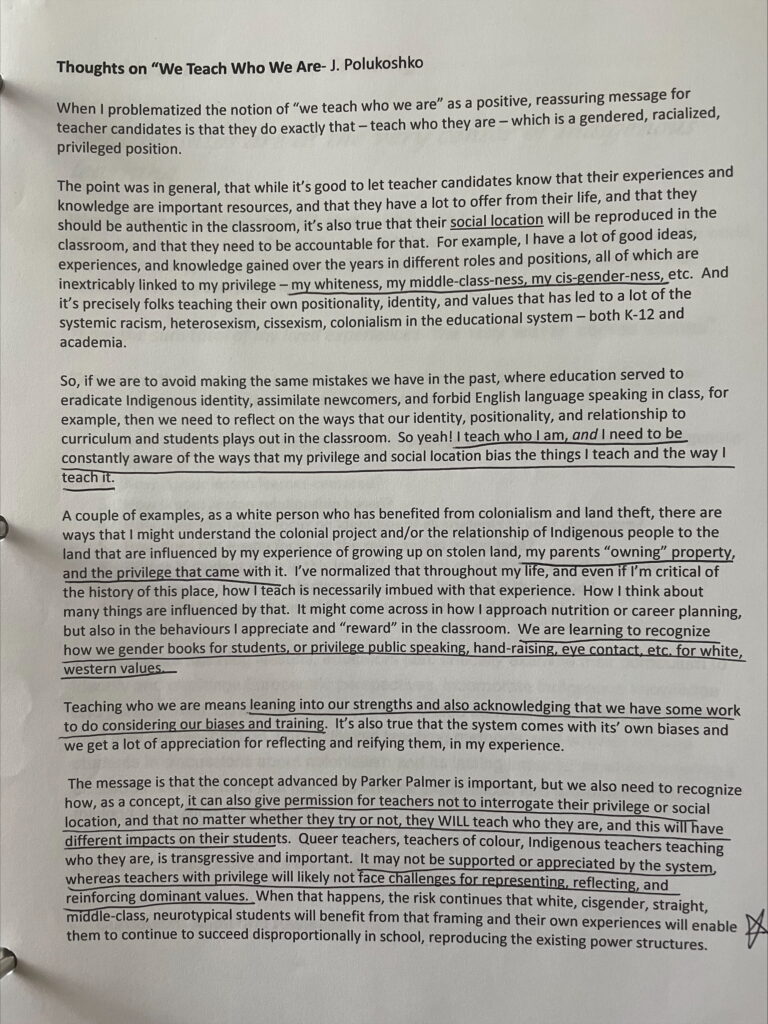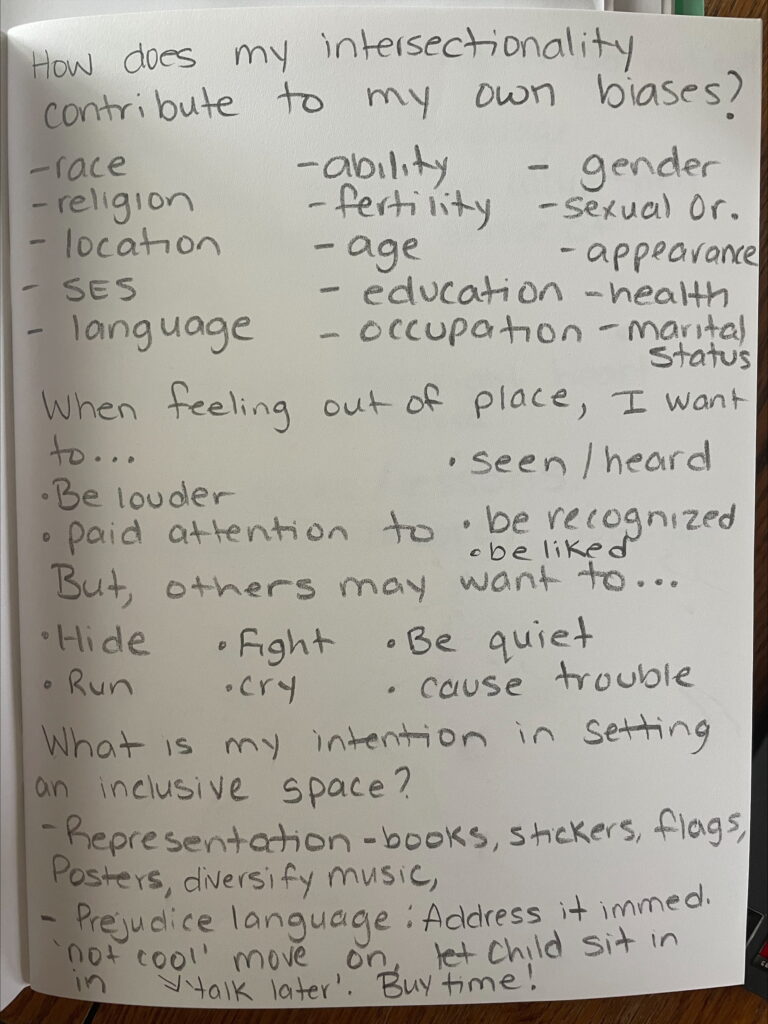

How does being authentic to who I am influence how I teach? Upon the surface, it may seem that being authentic to myself and teaching based upon who I am is a fool proof way…children can smell a fake! But, what if I teach to who I am and never consider that who I am may entail having a hidden bias, a hidden curriculum, or may be colonial in nature? What if teaching to who I am means children feel my privilege and that means I don’t understand where they are coming from? What do I imply? Am I implying the ‘American Dream”? That if you work hard enough, like I did, you can have success? Is this an ignorant message that doesn’t address barriers that I didn’t have to overcome? What about expectations, assessments, classroom rules, awards?
What is my relationship to my own privilege? How does my own intersectionality influence the way I teach?
These are questions that I have to constantly ask myself. Who am I and how does it influence my practice? If I teach to who I am, I must consider who I am first otherwise I am teaching in ignorance.
Part of de-colonization means to address my positionality, my privilege, my whiteness and how that comes across in my practice. The above article spoke to me and begged me to look even deeper at who I am and how my own personal experience and story may shape that way I teach.
As my portfolio addresses the need to know thyself, to reflect, to learn, and to change, this portion continues to do so. I want to be an authentic teacher, but in doing so, I must know how what may seem so natural to me may be ignorant to the experiences of others.